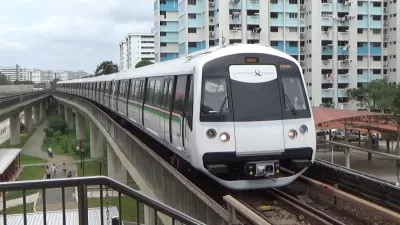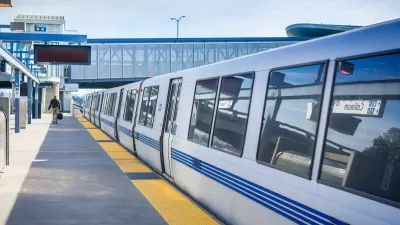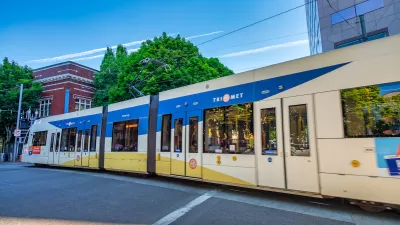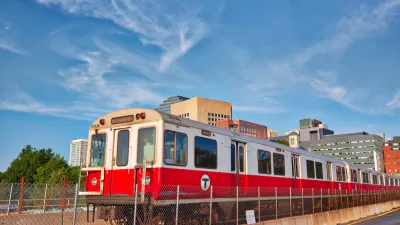The U.S. is an expensive place to build transit resources. A move from Congress to ban Chinese rail cars over espionage fears may exacerbate that problem.

Some in Congress hope to ban the purchase of Chinese rail cars from China Railway Rolling Stock Corporation, to avoid the becoming the site of spying or hacking. American public transportation has been targeted by hackers in the past. "Chinese hackers have not been accused of the transit ransomware attacks, but they have been blamed for hacking other U.S. government agencies and businesses in an effort to gain intelligence and trade secrets," Candice Norwood reports for Governing.
"The increasing role of the China Railway Rolling Stock Corp. (CRRC) has prompted a bipartisan group of U.S. senators to introduce legislation that would prevent transit agencies from using federal funding for rail-car contracts with companies that are owned, controlled or subsidized by China," Norwood reports. The company has already sold rail cars to Los Angeles, Chicago and Boston.
Transit agencies generally choose the lowest bid for equipment. Doing otherwise would likely make transit projects more expensive, a problem the U.S. already struggles with. Officials from the Washington D.C. region's WMATA have suggested that if the federal government wants to keep their agency from using the most affordable option, the federal government should provide the funds to cover the difference.
FULL STORY: As China Builds Transit Cars for U.S. Cities, Congress Seeks to Ban Them

Study: Maui’s Plan to Convert Vacation Rentals to Long-Term Housing Could Cause Nearly $1 Billion Economic Loss
The plan would reduce visitor accommodation by 25,% resulting in 1,900 jobs lost.

North Texas Transit Leaders Tout Benefits of TOD for Growing Region
At a summit focused on transit-oriented development, policymakers discussed how North Texas’ expanded light rail system can serve as a tool for economic growth.

Why Should We Subsidize Public Transportation?
Many public transit agencies face financial stress due to rising costs, declining fare revenue, and declining subsidies. Transit advocates must provide a strong business case for increasing public transit funding.

How to Make US Trains Faster
Changes to boarding platforms and a switch to electric trains could improve U.S. passenger rail service without the added cost of high-speed rail.

Columbia’s Revitalized ‘Loop’ Is a Hub for Local Entrepreneurs
A focus on small businesses is helping a commercial corridor in Columbia, Missouri thrive.

Invasive Insect Threatens Minnesota’s Ash Forests
The Emerald Ash Borer is a rapidly spreading invasive pest threatening Minnesota’s ash trees, and homeowners are encouraged to plant diverse replacement species, avoid moving ash firewood, and monitor for signs of infestation.
Urban Design for Planners 1: Software Tools
This six-course series explores essential urban design concepts using open source software and equips planners with the tools they need to participate fully in the urban design process.
Planning for Universal Design
Learn the tools for implementing Universal Design in planning regulations.
Ascent Environmental
Borough of Carlisle
Institute for Housing and Urban Development Studies (IHS)
City of Grandview
Harvard GSD Executive Education
Toledo-Lucas County Plan Commissions
Salt Lake City
NYU Wagner Graduate School of Public Service





























